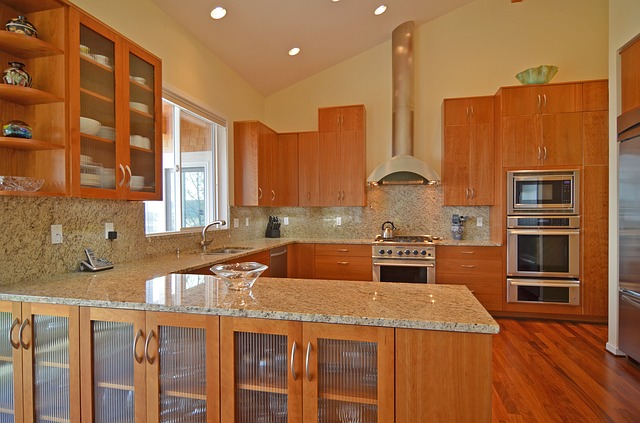The rooms in a home or business that have plumbing fixtures (sinks and showers) are often susceptible to mold growth. In the bathroom, this is easy to understand. The steam from baths and showers creates a moisture-rich environment that mold loves. However, the kitchen is a less-thought-of mold risk because it doesn’t generally get the steam that results in clouded windows or mirrors. However, if you think about the moisture released every time water is boiled, you can understand the mold risk. There is one thing that can help, and range hoods prevent some mold growth by providing ventilation.
Vented or Non-vented Hoods
There are two types of kitchen range hoods, and they are vented or non-vented. It is best to have a vented system with ductwork venting to the outside of the home. When this is not possible, range hoods can use filters to recirculate clean air.
Maintenance is Key
While range hoods are wonderful for keeping a fresh kitchen with improved air quality, they also increase the risk for mold in many circumstances. If you don’t change the filter, for instance, grease and debris will trap moisture, which will eventually lead to a moldy situation. Secondly, some vented hoods are erroneously vented into enclosed spaces like attics. This introduces that warm, moist air from your cooking into an area that is already at risk for mold growth. Lastly, down drafts from outside venting can bring in moisture. In order to keep a mold-free home, these risks must be handled through proper range hood installation and maintenance. This is why it’s critical to have your kitchen hoods cleaned on a regular basis. You can clean the hoods on your own at home. However, in the case of a restaurant kitchen, cleaning it by employing just one person may be difficult. As a result, it could be a better idea to look for services like Exhaust Hood System Cleaning in Birmingham, AL, that can help eliminate the risk of fire. Over time, the grime and grease that accumulates under the hood may drip onto the stoves and ignite a grease fire. That is why hiring professional commercial hood cleaning to keep your kitchen safe could be an appropriate alternative.
Ventilation will Prevent Mold
Aside from the risks associated from mold and mildew in improperly or poorly-maintained range hoods, they actually are a good addition to a kitchen. If they are the right size and installed properly, range hoods eliminate the air stagnation required for mold colonies to grow. This can help the entire kitchen, as it’s not just boiling water that introduces warm, damp air into the room. The sink, dishwasher, and any cooking devices can create warmth or moisture for mold to thrive in. Adding some ventilation is as important as ventilating a bathroom, and I don’t think many would argue the necessity of that.
If you don’t currently have a range hood, consider getting one installed. It truly freshens the air in the kitchen and improves air quality in many ways, one of those being the elimination of mold.
